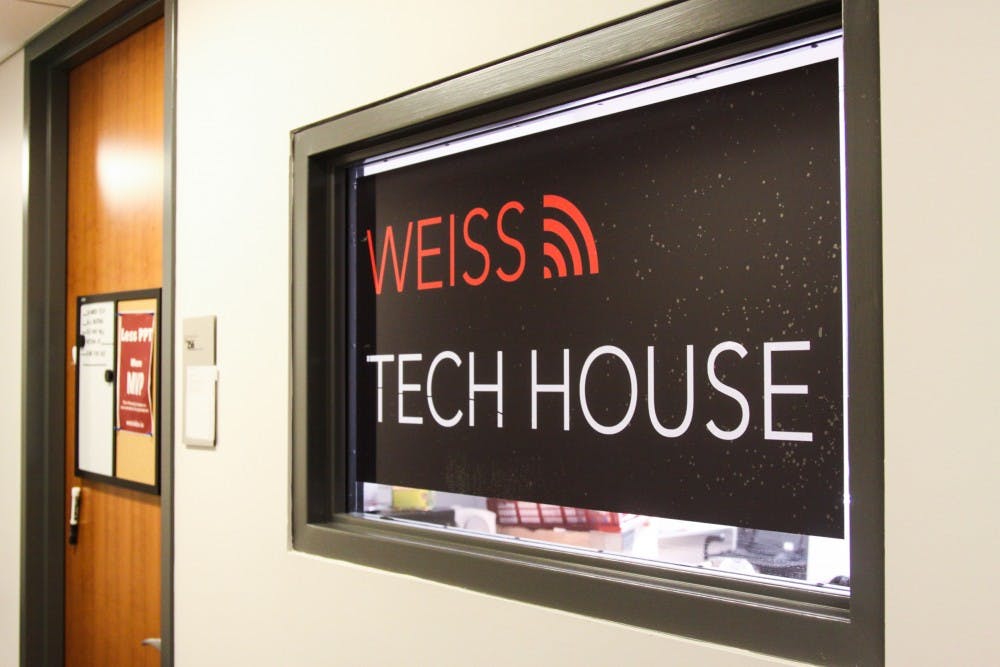A student-run innovation fund has already provided capital to launch four Penn startups this year, and it’s only the beginning of second semester.
The Weiss Tech House Innovation Fund gives grants ranging from $500-$2000 to startups that involve technology in some way, College senior and Fund co-chair Jason Shein explained.
Shein facilitated a recent “relaunch” of the Weiss Tech House Innovation Fund to institutionalize the non-financial resources it now provides to the companies receiving their grants.
“We’re aiming to create lines of communication that exist before funding, during the funding process, and after funding,” Shein said.
Here are the four companies that were funded last semester:
Bright Idea applied a similar model as Elon Musk’s SolarCity, which installs solar panels and then receives some of the savings from the process, Shein said. Bright Idea adapted this concept to LED lightbulbs — they provide and install the bulbs, free of charge, to large companies and then split the savings with them.
Bright Idea doesn’t charge for the installation or the bulbs themselves. Instead, they make their money when the company receiving the bulbs calculates their savings and pays half of that to Bright Idea.
As their website reiterates, Bright Idea’s business is contingent on their confidence that the lightbulbs will result in lower energy costs, as they will not make money if the LED bulbs are not cost-effective.
Sanguis is a medical device for cancer patients and the product of three graduate students in the school of medicine.
Co-founder Prateek Agarwal explained that patients receiving chemotherapy can experience sudden drops in their white blood cell count. He added that this can cause complications, some fatal, because lower white blood cell counts equate to weakened immune systems.
Daniel Zhang, another co-founder, emphasized the device’s importance.
“These patients are already going through the worst challenge of their lives, and, on top of that, the treatment they need is causing them to be even more sick from infections,” he said. “We thought this area could use some new ideas that could improve the wellbeing of these patients.”
Sanguis is still in the research and development phase but both Agarwal and Zhang — who do not come from business backgrounds — spoke to the importance of the advice, in addition to the funding, that they have received from the Weiss Tech House.
SolutionLoft is a software company working to ameliorate the inefficiency that creator College and Wharton senior William Fry noticed in software development.
Fry explained that most software average clients want developed has already been created, but there does not exist a way to find and reuse this preexisting code.
SolutionLoft, then, is a shared database of code that grows with each project its team of 30-plus developers creates. The developers are motivated to post their code to SolutionLoft after they finish their projects because SolutionLoft pays above market prices for the reuse of their code.
SolutionLoft is a practical avenue for college students looking to make extra money by coding, Fry added. He explained that the 20-30 hours needed to code a software can be a barrier for many students. SolutionLoft’s extensive database of reusable code thus allows them to complete projects in a fraction of that time because they only have to code the new parts.
Fry said that the Weiss Tech House helped him find engineers for his team. In fact, half of his team is current Penn students and alumni.
“If anyone’s ever thinking about starting a business, they should reach out,” Fry said of the Weiss Tech House.
Twine is a software that finds internal employees to fill open spaces in large companies. It helps reduce hiring costs because it better enables corporations to hire from within, instead of paying recruiters to source new employees.
Wharton MBA student Joseph Quan started Twine during his first month at Penn as an algorithm that connected Wharton students so that they could meet new people every month. Although hundreds signed up for his program, Quan ended up shifting its focus it to apply to businesses.
Quan described his experiences with the Weiss Tech House as “very similar to joining a family.”
“We have an ongoing relationship that doesn’t end with money,” he said.









